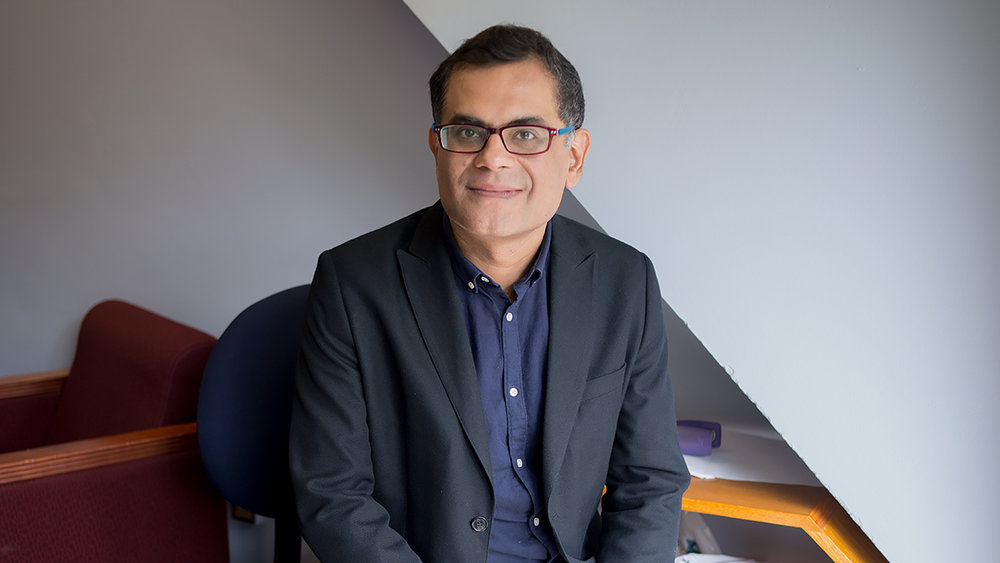U.S. war machine has found a convenient scapegoat in the shape of Pakistan to hide its failures in Afghanistan

Raza Rumi is a leading Pakistani journalist, political analyst, and author, currently based in the U.S. He is the editor of Daily Times, Pakistan and the Visiting Faculty at Cornell Institute for Public Affairs, U.S. and Scholar in Residence at Honors Program, Ithaca College, U.S.
Q. In his hyperbolic New Year tweet, U.S. President Donald Trump threatened to withhold military aid to Pakistan for not doing enough to dismantle terrorist sanctuaries. Some political leaders and analysts in Pakistan believe the U.S. President needs a scapegoat (Pakistan) to hide America's failures in Afghanistan. Do you agree with that argument?
A. It is indeed the case that the U.S. war machine has found a convenient scapegoat in the shape of Pakistan. The truth is that the Afghan war is the longest engagement that the U.S. has had in a foreign country in its recent history. Its strategy and aims have been shifting and a disregard for Afghan history has brought things to such a pass. Admittedly, Pakistan has also kept its security concerns over and above its relationship with America but it is after all a smaller power and the primary responsibility of U.S. failures must be borne by U.S. war strategists.
Q. Relations between Pakistan and Afghanistan have worsened in recent years with both countries accusing each other of sponsoring cross-border terrorism. Afghan government accuses Pakistan of sheltering Afghan Taliban and Haqqani Network, an accusation also made by some U.S. officials. What's your take on this?
A. Every nation state has to keep its interests in view while dealing with external actors. Pakistan's security paranoia is linked to Indian efforts to gain greater influence in Afghanistan. Keeping that in view, the strategy to support the Haqqanis has its own logic. However, there are voices within Pakistan that have urged the state to find alternative allies within Afghan political spectrum. As a tit-for-tat policy, the Afghan authorities have also tolerated the havens of Pakistani Taliban who attack Pakistani state as well as its people. In addition, Pakistan also complains that the Baloch separatists find support within Afghanistan. So this is a pretty complex scenario that can only be resolved with a larger settlement between Pakistan, Afghanistan, the U.S. and regional actors like Iran and India.
Q. Recently the UN human rights body published its first report on Kashmir, urging both India and Pakistan to stop human rights abuses and work towards conflict resolution. Do you think the peace process between the two countries could be resurrected and the issue of Kashmir can be resolved?
A. Absolutely. There is an urgent need to address the issue of Jammu and Kashmir as a means to normalize relations between India and Pakistan but more importantly to give reprieve to the people of Kashmir who have been suffering for years. Truth be told that headway was made under former Pakistan President Parvez Musharraf?s tenure but the process has been stalled for a decade. Recent gestures by the Pakistan Army have been encouraging wherein a readiness has been shown to open up dialogue with India.
Q. The elections are fast approaching in Pakistan. Which party do you think has maximum chances of forming the government? How strong is Imran Khan's party PTI at the grassroots level?
A. The elections are bitterly contested. And the results are expected to throw up a hung parliament. Imran Khan's party is expected to do better but it is not likely to get an absolute majority. The good thing is that this will be a third democratic transition in the coming years.
Q. Pakistan and Iran share deep historical, cultural and diplomatic ties. How do you see the future of Iran-Pakistan relations?
A. This is one relationship which despite so many setbacks has survived rather well. But it needs to improve at a cultural and economic level. Pakistan and Iran need to trade more. They also have common interests of stability in Afghanistan and enhancing economic ties with Central Asia. It is time that both the countries work to deepen this historic relationship.
Q. China seems to have quietly replaced U.S. as Pakistan's top ally, with Beijing's massive investments in Pakistan. Do you think Americans should be worried with this growing proximity between Islamabad and Beijing?
A. There are few policy quarters within Pakistan who view this as a zero sum game. But the reality is that Pakistan needs to maximize on its long standing relations with both the countries. There is no question that Pakistan is in a long-term, economic engagement with China and this relationship is growing and giving Pakistan more confidence to handle its foreign affairs. In terms of economic future, this is a positive development.
Leave a Comment